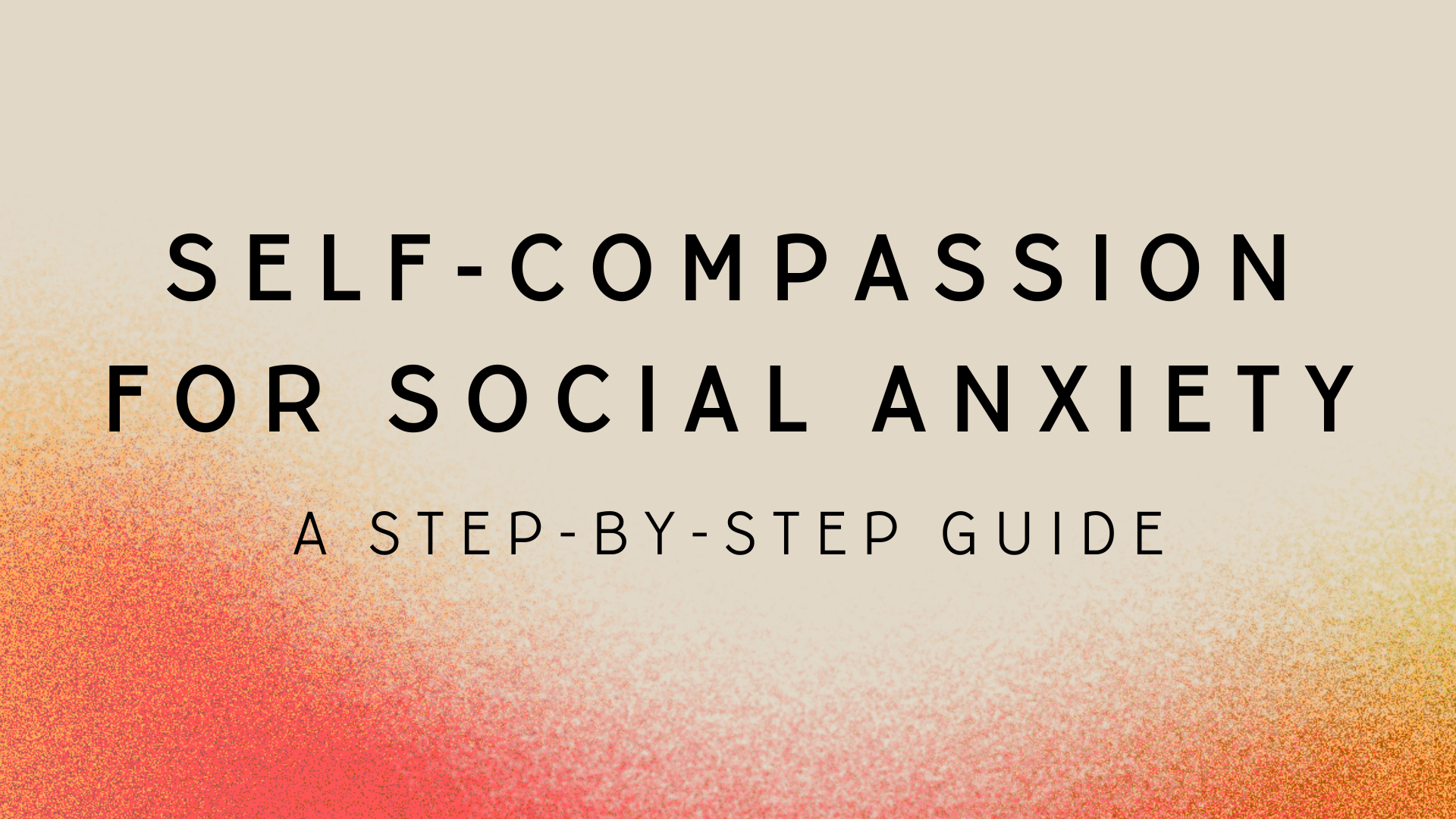Self-Compassion for Social Anxiety: A Step-by-Step Guide
What If Kindness is the Answer?
Having overwhelming anxiety before a presentation, social event, a difficult conversation, or even a phone call is an exhausting state of being. When your mind starts running through “I can’t do this” or “they’ll see I’m nervous,” it’s easy to spiral into harsh self-judgment. That’s where self-compassion comes in. Treating yourself with the same care and understanding you’d offer a friend can actually reduce anxiety, help you recover from mistakes faster, and make it easier to stay present in anxious moments.
Self-compassion is responding to your discomfort with curiosity and kindness. When you notice yourself struggling, simple steps like acknowledging your pain, softening judgment, and reconnecting with your values can shift the way you approach anxiety driven situations. The guide below offers a step-by-step way to bring more self-compassion into moments of social or performance anxiety.
Practical Self-Talk for Anxiety
1. Recognize Suffering
- “This is a moment of pain.”
- “I’m feeling overwhelmed / anxious / sick.”
2. Normalize the Experience
- “Suffering/anxiety is part of being human.”
- “Others feel this way too when there is a lot of pressure.”
3. Soften Self-Judgment
- “It’s okay to feel this way right now.”
- “This isn’t weakness—it’s part of my caring.”
4. Acknowledge the Values Underneath
- “This anxiety shows me how much I care.”
- “I want to help or make things better.”
5. Release Perfectionism
- “Even if I can’t fix this, that doesn’t mean I’m bad or a failure.”
- “I’m human. I struggle, and that’s okay.”
6. Shift to Compassionate Motivation
- “What do I need right now to care for myself?”
- “What would kindness do next?”
The Compassionate Hand-on-Heart Gesture
Gently place your hand over your heart. Take a slow breath and say:
- “I’m here for you.”
- “This is hard, and I care.”
Use this physical gesture to help soothe your nervous system and reconnect with warmth and safety.
Small Moments of Kindness
Building a habit of self-compassion takes practice, but even small moments can make a difference. Using physical gestures and compassionate self-talk in stressful moments can reduce the grip of anxiety but more importantly allow yourself to be “okay” with your own experience. Over time, these practices help you respond to yourself with care, rather than criticism, and allow you to navigate challenges with resilience. Next time your mind drifts toward worry or self-doubt, try stepping through these steps—or placing a hand on your heart—and notice how treating yourself kindly changes the experience.
If you are interested in learning more about my counseling practice, click the button below to get started on your mental health journey.
